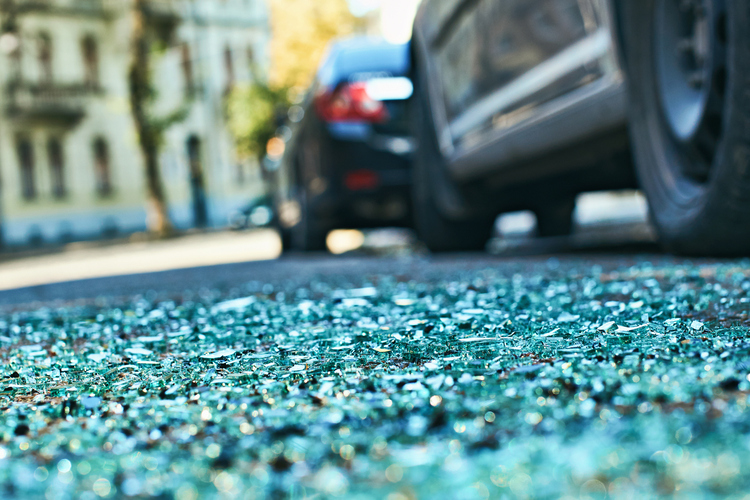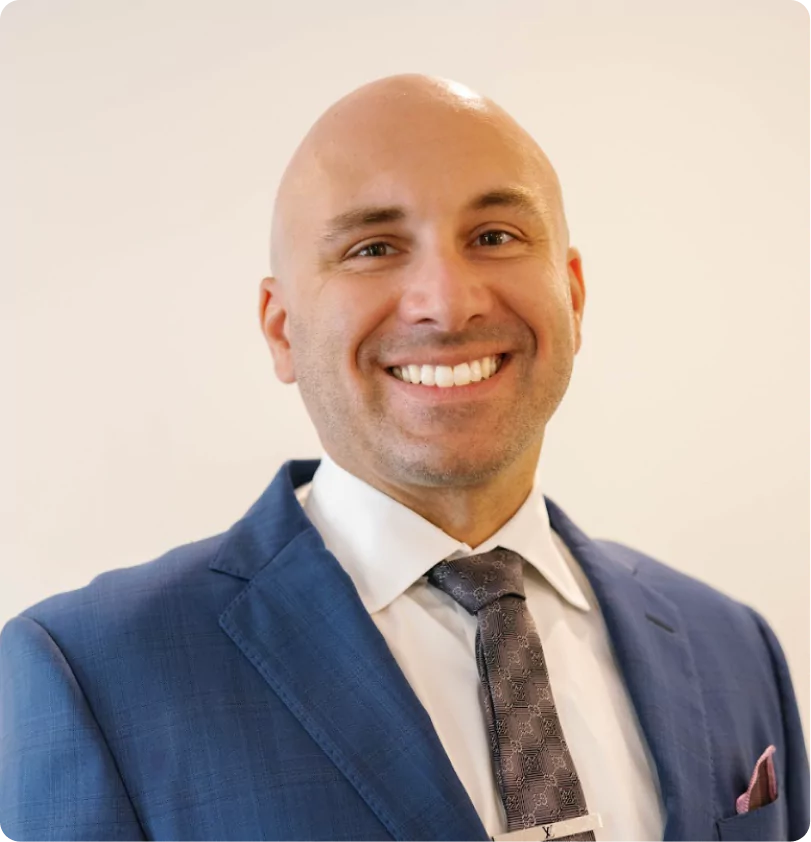Home > Denver head-on collision attorney
Head-on collisions are among the most dangerous types of crashes. These accidents can leave you with severe injuries and a mountain of medical bills and expenses. You could also face a lengthy recovery and/or permanent damage. When you are uncertain about how to get the resources you need after an accident, hire a Denver head-on collision attorney to advocate for you.
Zara Injury Law provides legal guidance when navigating a claim against the driver who caused your accident. Our team will take the time to build a solid case tailored to the specific needs of your case, enabling you to achieve the most favorable results. A Denver car accident lawyer supports you and will help you file a lawsuit against the at-fault parties to get the justice and compensation you deserve.
Why contact Zara Injury Law after a head-on collision
Zara Injury Law helps car accident victims secure much-needed compensation after a collision. When you have been involved in a car accident in Colorado, an experienced personal injury lawyer from our team will help you navigate the claim process. We advocate for you and take the time to thoroughly investigate the accident so we can provide the most effective strategies for your situation.
We also fight to protect your rights, protecting you against insurance companies or opposing parties that might take advantage of you. We aggressively negotiate to secure the most favorable outcome for you. While we aim to help you get results as swiftly as possible and avoid litigation in court, we are fully prepared to go to a judge if necessary to secure the compensation you deserve. Additionally, to better serve our clients, we offer free consultations and contingency fees.
What our clients have to say
Why are head-on collisions so dangerous?
Head-on collisions are highly dangerous due to the force of impact during a crash. Motorists also often suffer multiple points of impact, which increases the extent of injuries. For example, individuals will be thrown forward during the collision but pushed backward when the vehicle stops. The final point of impact happens internally when organs shift and hit against the inside of your body.
Common injuries in a head-on collision
Given the additional force that occurs during a head-on collision as compared to other points of impact, the risk of a severe car accident injury is considerably elevated. Some common injuries in a head-on collision include:
- Traumatic brain injuries (TBIs)
- Spinal injuries
- Internal bleeding and organ damage
- Whiplash
- Neck injuries
- Chest and rib injuries
- Broken bones
- Nerve and tissue damage
Receiving medical treatment after a head-on collision is essential. You may need tests or evaluations to understand your injuries fully, and prompt treatment can help prevent those injuries from getting worse. Getting medical care immediately also supports a faster recovery and improves your overall prognosis.
Fatality rates in head-on collisions
Head-on collisions are the second most common cause of vehicle-related deaths after angle collisions. According to the National Safety Council, head-on collisions made up 29.9% of deaths involving other vehicles, which equaled 5,800 deaths during the most recent year reported. Head-on collisions during a motor vehicle accident are often fatal because the force of both vehicles combines and transfers directly into the occupants, increasing the severity of injuries.
Common causes of head-on collisions
Head-on collisions can occur for reasons ranging from negligence to lack of signage and safety measures. These factors considerably impact the extent of the harm suffered during a collision. Below is a look at some common causes of car accidents.
Wrong-way drivers
Wrong-way drivers pose serious harm to other motorists when they go against the flow of traffic. Poor or confusing signage on roads or interstates can cause drivers to turn the wrong direction and collide with other motorists, especially if turning around or avoiding oncoming cars is impossible. Intoxication is also a common factor in wrong-way driving accidents. Intoxicated drivers are less likely to pay attention and tend to react more slowly when going against the flow of traffic.
Distracted driving
Distracted drivers can drift over the centerline into oncoming traffic or go in the wrong direction. Cell phone usage is a primary distraction that pulls a driver’s attention away from the road and contributes to head-on collisions. Distractions can also include adjusting cabin settings, eating, or losing focus.
Passing on two-lane mountain roads
Mountain roads can be particularly hazardous for drivers. Decreased visibility and hairpin turns can hide the presence of another vehicle until it is too late to react quickly. Vehicles are also more likely to hug the midline as they come around curves, which puts them in closer proximity to an oncoming car. Speeding on these roads can also increase the risk of collisions and result in more severe accidents.
Poor signage or lack of lighting on rural roads
When roads are improperly marked or signs are unclear or missing, drivers may unwittingly turn the wrong way and end up in oncoming traffic. Poor lighting can contribute to or exacerbate this problem by preventing drivers from seeing signs or traffic.
Who can be held liable in a head-on collision?
Determining who is at fault in a head-on collision is an essential part of the claim process. The details of the crash and its cause must be investigated to determine who is at fault and by how much. While one of the drivers is most commonly liable for the accident, this may not always be the case. Some common parties who can be held liable in a head-on collision include:
- Negligent drivers
- Commercial vehicle operators driving under the Colorado Department of Transportation, or their employers, who have unrealistic expectations for drivers
- Government entities that fail to provide adequate signage or lighting
- Vehicle manufacturers who produce defective parts
Each of these parties may play a different role in causing an accident. Depending on who is liable, various considerations may apply when resolving a claim. As such, it’s important to seek the counsel of an auto accident lawyer.
Establishing liability in a head-on collision
Once you identify negligence in an accident, you must establish it as factual in a claim. To show how fault is determined, your lawyer must demonstrate that the other party had a duty to keep you from harm, breached their duty by acting a certain way, and caused the head-on accident. This causal relationship makes them responsible for your damages.
Recoverable compensation after a head-on collision
The severity of head-on collisions leads to extensive losses and staggering expenses. Many individuals are unprepared for the financial hardship resulting from these losses, so compensation is designed to provide valuable assistance. Damages will cover your monetary losses and less tangible losses, such as pain and suffering. Depending on the details of your case, you may be able to recover some of the following:
- Medical expenses, ongoing care, equipment, home accommodations, and medication
- property damage costs
- Loss of income due to injuries
- Pain and suffering
- Decreased quality of life
- Loss of enjoyment
- Loss of consortium or companionship
In some cases, you may also be able to recover punitive damages. If you suffered extreme harm due to another party’s gross negligence or malice, the judge may order them to pay additional compensation as punishment for their behavior.. Make sure to talk with your Denver head-on collision lawyer in these situations to learn more about what damages you can request in your case.
Zara Injury Law fights for you
Zara Injury Law ensures that you have someone on your team in the aftermath of a head-on collision. Our legal professionals have extensive experience getting positive results for clients, and we will fight to get you the compensation you deserve.
Our team allows you to focus on healing from your injuries while we handle your case on your behalf. To take the first step, schedule a free consultation with a Denver car accident attorney today by calling (866) 823-8288 or filling out the contact form online.
We answer commonly asked questions about head-on collisions
The steps you take after a car accident are critical to your safety and the outcome of your claim. First and foremost, you should obtain a medical evaluation right away. It’s also important to file a police report and exchange contact and insurance information with the other driver. Photographic evidence and records of your expenses and losses are essential to support and strengthen your claim. To get the most favorable outcome possible in your case, be sure to hire auto accident attorneys in Denver.
According to Colorado’s statute of limitations, you have two years from the time of the collision to file your claim. While you may not be able to file a claim right away, hiring legal representation as swiftly as possible is essential. You must not only file before that date, but you must also account for time to build your case. The quality of evidence may also degrade over time, which can hurt your claim. Protect the success of your claim by avoiding delays.
As long as you are less than 50% at fault for an accident, you may still recover compensation per Colorado’s modified comparative negligence law. If you are entitled to recover damages, your compensation will be reduced by your percentage of fault. Any level of fault over 50% results in a forfeiture of compensation.
Local Resources
Zara Injury Law: 4700 S. Syracuse St. Suite 860 A, Denver, CO, 80237
Denver Emergency Department: You can seek immediate medical evaluation and treatment for injuries after your accident.
Trauma Survivor Support Group: This is a support group for survivors of trauma and significant injury facilitated through Denver Health
Get immediate legal assistance now
Other Practice Areas


